Coming to America.
Murray, Isaac and Adelle Youman were the children of Jews who had fled Poland in the 1920s as pogroms swept the country.
They had settled in Finland, where the children were born, and the family found safety and prosperity there.
The children’s father had been a tailor in Poland, and in Finland, he became the wealthy owner of a factory which produced men’s clothing.
The family lived happily in a large apartment with two maids and the children were sent to private school.
But everything changed on November 30, 1939, when the Soviet Union invaded Finland.
Stalin launched the assault when Finland refused to give the Soviet Union a part of Finland which had historically been Russian.
This conflict would be known as the “Winter War.”
The Youman family left Finland immediately and emigrated to America.
Many decades later, the Youman children described their harrowing journey.
Isaac:
“One day, they had an air raid, and [the schoolteachers] told us to go home.
“They wouldn’t tell us why.
“As I crossed the street, a bomb hit right near me.
“A trolley car completely blew up.
“All the people died on it.
“I somehow lived.
“I don’t know how.
“I saw red all around me.
“I saw my father run into a building they had told us not to go into, to save somebody, come out, and sure enough the building blew up right before our eyes.
“Well, that night we left Helsinki.
“We were constantly living in the shadow of Russia.
“Living next to a country which could swallow you up in no time at all was scary.
“It was scary.”
Adelle:
“You don’t leave a country that has been very good to you for twelve years and go to another country where you don’t know the language, unless you find something so traumatic.
“As I get older, I realize how much courage it takes to leave a country.”
Isaac:
“The truth is that my father didn’t want to leave Finland.
“He loved Finland.
“My mother knew nothing of America, except that she had a married sister here working in the garment center.”
Adelle:
“She knew America was safe.
“She always said that, way back when they were in Poland.
“Rumors had gotten there that America was safe.
“There were no pogroms there.
“There were no wars.”
Isaac:
“We left Helsinki in a rush.
“The streets were full of glass from broken windows.
“I recall my father had to look for somebody who would take us out of Helsinki.
“He finally was able to buy somebody off, and they took us out, and eventually we got a train.
“I remember the train went north toward Sweden.
“Every time there was an air raid the train would stop.
“Everybody would have to get off the train and lay down in the snow.
“We had these white robes, so we’d be sort of [be] covered up by this.”
Adelle:
“You had to bring white fabric, and most people probably brought white blankets.”
Murray:
“After a week or two in Stockholm, we finally took the train over to Oslo.
“There was a Norwegian [transatlantic passenger] line at that time.
“The Bergensfjord was the ship we took [to America] from Oslo.
“[The ships] were trying to dodge the [German] submarines.”
Isaac:
“As we went, we changed the flags to German colors, English colors, Norwegian colors.
“I don’t know if that fooled the [German] submarines or not, but we made it.
“To avoid the mines and the subs, we also moved in a zigzag pattern.”
Adelle:
“My mother was afraid.
“She didn’t know if they’d send her back.
“She was going to New York with papers for Haiti because the Polish quota for America was closed up.
“The Haitian quota obviously was not closed, and what we wanted to do was get out of Finland, and that’s why we had papers to Haiti.”
When the ship docked on the west side of New York, the family was taken to Ellis Island where those with irregular paperwork were processed.
After several weeks, the family was allowed to enter the US.
The Youman family stayed with relatives until they were able to find an apartment in Brooklyn.


Murray: “We wanted to learn how to be American, and we worked at it.”

Isaac:
“This is the only place to live.
“I honestly feel that Americans should travel outside the United States to realize what they have.
“They have a wonderful country here.”
*******************************
I’ll see you tomorrow.
— Brenda
The Youman children’s interview appears in “Immigrants Tell Their Stories in Their Own Words,” by Peter Morton Coan, 1997. The banner image depicts Helsinki during the initial Soviet assault.


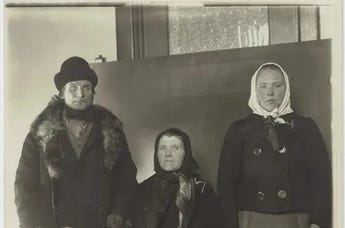
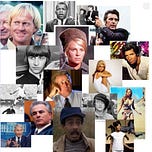





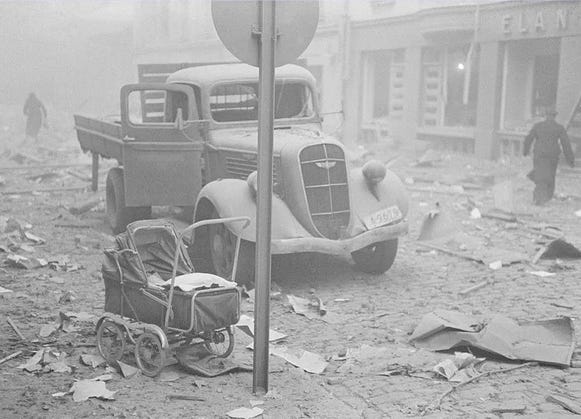

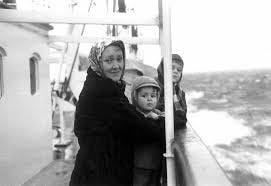


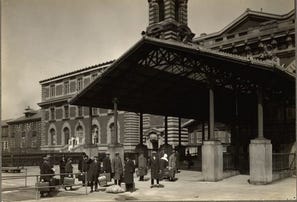










Share this post